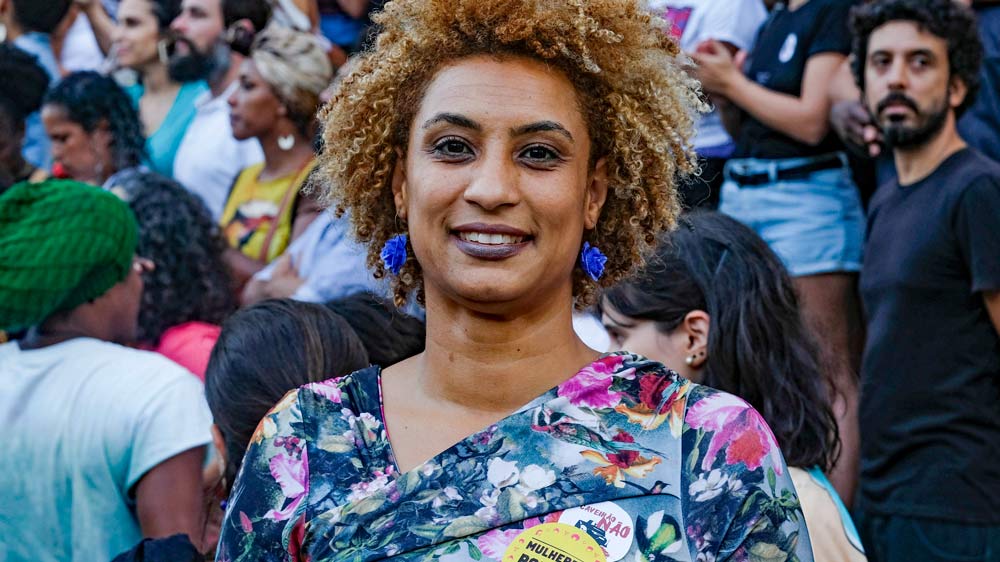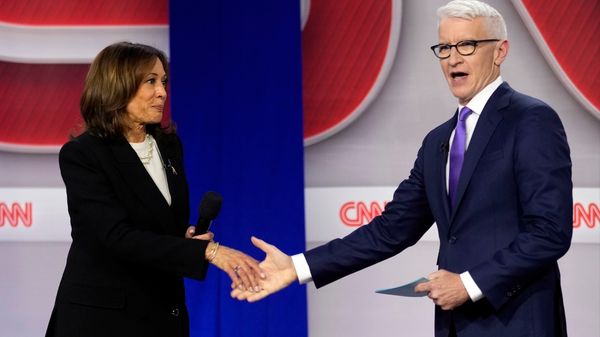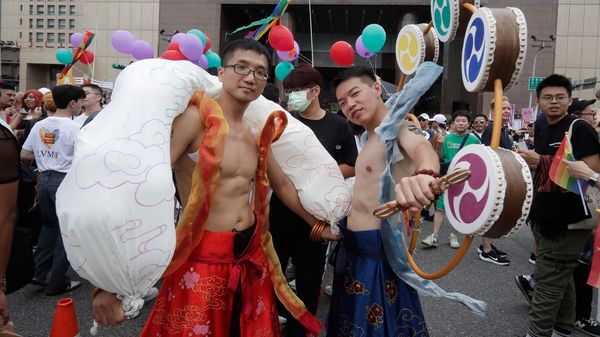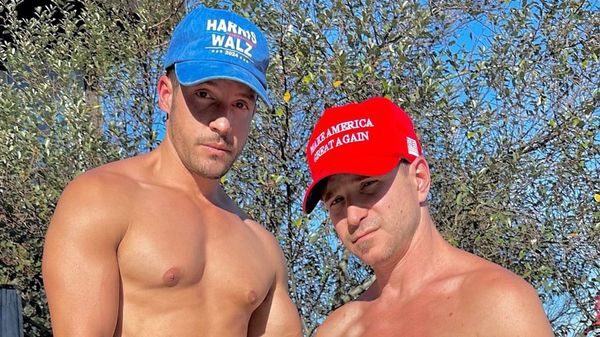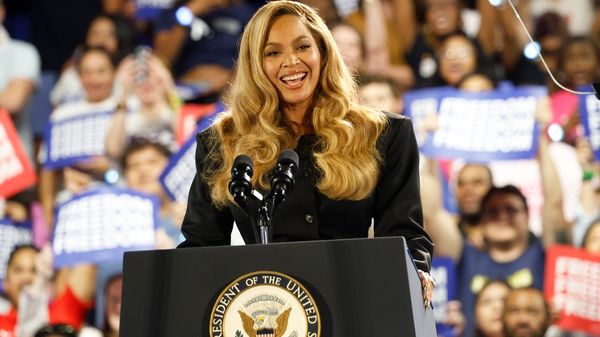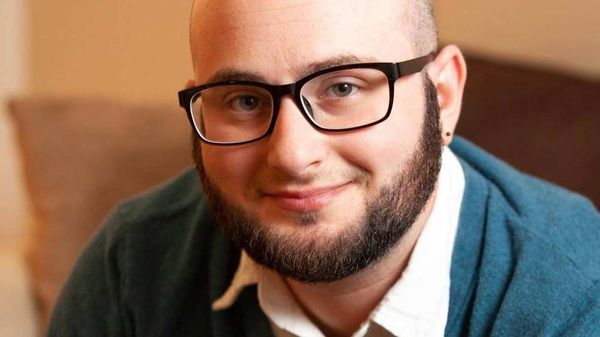September 20, 2007
The Human Rights Campaign Brings LGBT Issues to New Hampshire
Frances Betlyon READ TIME: 5 MIN.
CONCORD, N.H. - If the Human Rights Campaign has its way, presidential candidates pressing the flesh on the streets, in the coffee shops and on college campuses across New Hampshire will be quizzed, called out or congratulated on their positions on LGBT issues by voters. The Washington D.C.-based group, which drew an enthusiastic crowd of supporters to the Sept. 12 grand opening of its New Hampshire office, is organizing throughout the state to inject LGBT issues into the presidential primary.
Located in the heart of the Granite State capitol city of Concord, the HRC office occupies a prime piece of storefront real estate between two community institutions on Warren Street: French's Toy Shop and Granite State Candy Shoppe, both of which have been doing business since the 1920s. State Sen. Harold Janeway noted that after so many years of being forced to operate at society's fringes, the presence of an LGBT organization between two prominent community pillars was an apt symbol for the growing acceptance of the LGBT community in the mainstream. "So you're right where you ought to be," Janeway told the crowd, which included a host of other political figures including openly gay state Democratic Party Chair Ray Buckley, Senate President Sylvia Larsen, former state Democratic Party chair Kathy Sullivan and openly gay state Reps. Mo Baxley and Ed Butler.
Indeed, location was everything over the recent Labor Day Weekend, when Heather Gibson, the New Hampshire political operative hired to run the HRC office, spied a few too many Hillary Clinton campaign staffers hanging around outside on Sunday morning. Clinton was holding a rally on the State House lawn later that day; Gibson asked the staffers if the candidate planned to visit downtown businesses beforehand. The staffers said that she wasn't but offered no explanation for their loitering. Meanwhile, a crowd was gathering inside Granite State Candy Shoppe. Gibson knew something was up. She went inside and dialed up the volunteers who were scheduled to work later that day and asked if they could come to the office now. Two of them, members of the Concord High School Gay/Straight Alliance, showed up right away. Gibson also called a friend who lived nearby, who showed up with her two children in tow.
By this point it was clear Clinton was on her way over, evidenced by the presence of Secret Service members. When the Secret Service started to clear out bystanders on the street, Gibson suggested to her band of volunteers that it might be a good time to wash the HRC storefront's windows. Sure enough, Clinton, who Gibson would later learn had filmed a television spot in the candy store, pulled up, exited her car and greeted people outside of Peter's Images, a nearby beauty salon. To get to the candy shop, Clinton would have to pass by the HRC office. So Gibson and her crew set down their cleaning supplies and waited. Moments later, as the crowd looked on, Clinton greeted Concord High GSA member Ashley Fortune - clad in an HRC T-shirt - who thanked the senator for standing up for equality. "Oh, thank you," Clinton replied. After the brief interaction, Fortune, who had volunteered for HRC on just one other occasion, turned to Gibson and said, "I'll volunteer for you anytime."
Gibson was quick to point out that the window-washing subterfuge isn't her usual M.O. In fact, she seemed more pleased with the prospect of finding a repeat volunteer in Fortune. But the encounter with Clinton, however small, illustrates HRC's much bigger goal of engaging all of the presidential campaigns as often as possible in this all-important first-in-the-nation primary state, where politics still requires a very personal touch.
As HRC National Field Director Marty Rouse said in remarks at the gathering, "We need all of you to reach out to the Republican presidential campaigns and the Democratic presidential campaigns and be visible. Be visible, introduce yourself, wear an HRC sticker, wear something that identifies you as an LGBT member of the community or an ally and ask the question about fairness. Talk about your family, make this very, very personal because you know that politics in New Hampshire is very personal." Rouse made a special appeal for volunteers to engage the Republican presidential campaigns, all of which have publicly staked out unfavorable positions on LGBT issues such as marriage equality and repealing "Don't Ask, Don't Tell," and, unlike their Democratic counterparts, have not courted LGBT voters. "We need you to go to Republican events and house parties that Republican candidates are having and be there and ask questions, in a friendly way," said Rouse. "Talk about your lives, talk about your family, talk about your parents, talk about your children. Engage these presidential campaigns now, in New Hampshire. In small settings we can actually make a difference."
The opening of the HRC's New Hampshire field office follows on the heels of HRC's successful collaboration with Granite State Democrats last November to elect pro-equality candidates to the legislature. The organization provided critical human and financial resources that helped flip control of the State House from Republicans to Democrats. A few months later, a civil unions bill easily passed through the body and was signed by Democratic Gov. John Lynch.
"We've come a long way in this state and it is through the hard work of HRC and the hard work of all of you that we have been able to end discrimination in New Hampshire," said Larsen, who represents Concord, in her remarks to the crowd. The Senate President then presented Rouse with a Senate resolution marking the opening of HRC's New Hampshire office. "Be it known that the New Hampshire Senate hereby extends its congratulations to the Human Rights Campaign in recognition of opening up its first presidential primary office in the state of new Hampshire," said Larsen, reading from the proclamation. "Be it further known that the New Hampshire Senate extends its best wishes for continued success."
Buckley also offered praise for HRC's decision to continue to make its presence known in his home state. "Certainly HRC played a significant role in the 2006 elections up here," Buckley said during a brief interview with Bay Windows. "And by bringing our issues forward to not only the candidates, but to the national media that's here and also literally the hundreds upon hundreds of activists that come to new Hampshire ... I think that really gives an opportunity to speak to an entire generation of leaders that I'd say in the Beltway isn't always possible."
